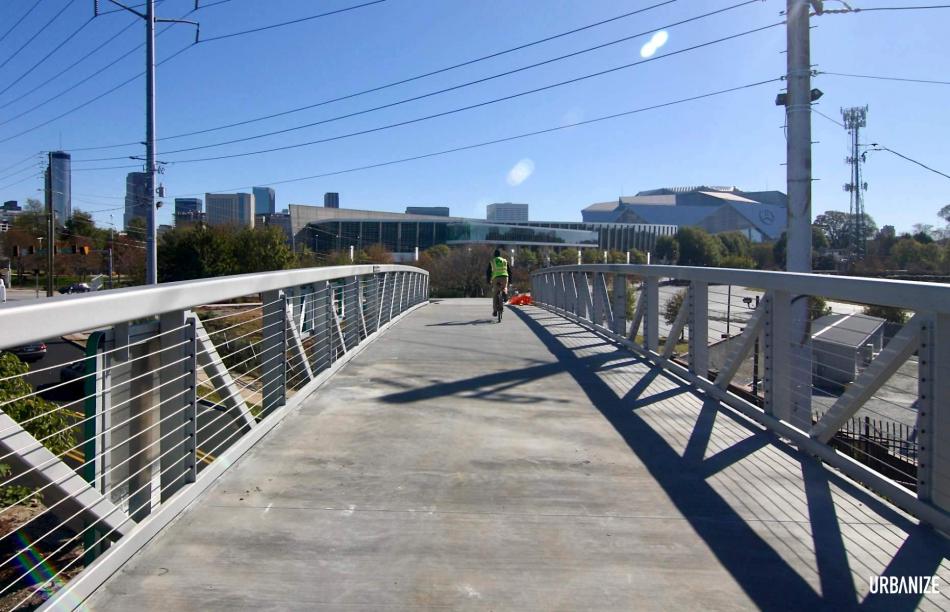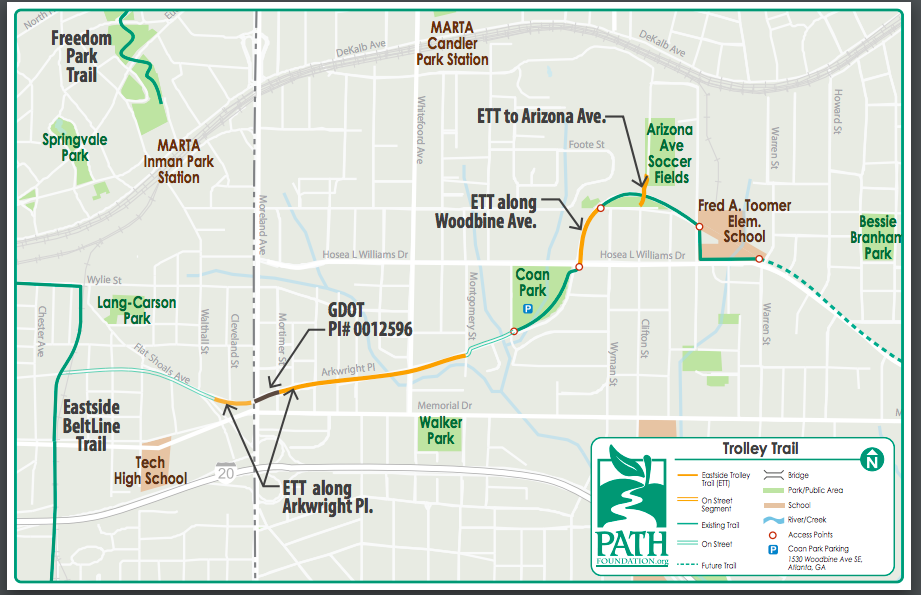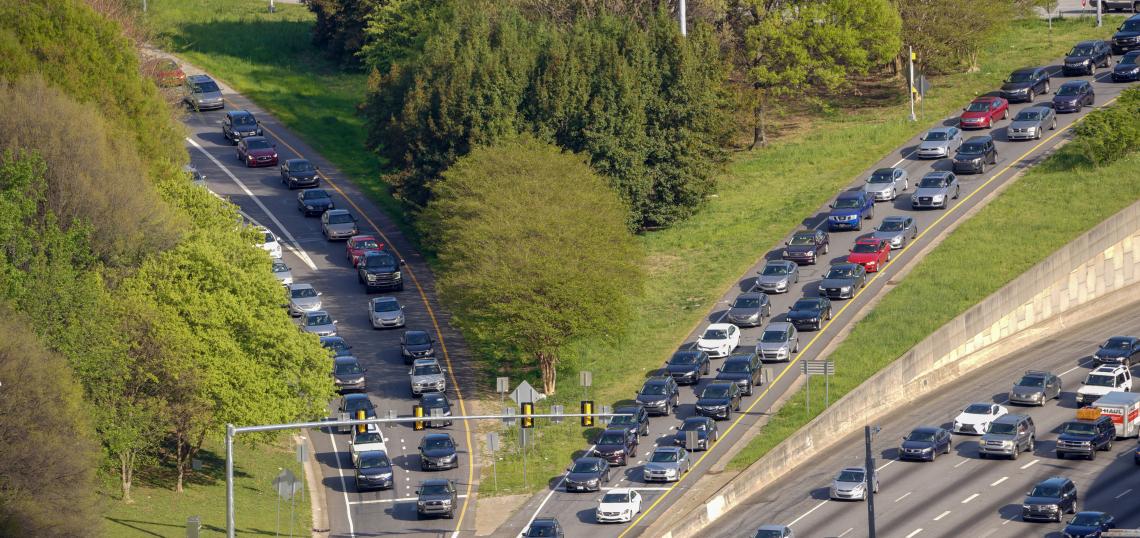Atlanta Mayor Keisha Lance Bottoms’ administration introduced two pieces of legislation this week that officials say will move forward infrastructure and public safety updates across the city.
That would encompass everything from fixed sidewalks to upgraded parks, according to the mayor’s office.
The two-part legislation was introduced to the Atlanta City Council as a $700-million funding package meant to address infrastructure needs over the next five years, long after Bottoms will have left office.
Unlike voter-approved funding tactics that have fallen short of expectations in the past, the 2022 infrastructure package would not require tax increases. Existing tax revenues will foot the bill instead, according to the city.
The priciest component would be an estimated $400-million revenue bond. Bottoms’ administration wants it put before the public in a May ballot initiative next year, per a city announcement.
 The BeltLine used $5.1 million in TSPLOST dollars, approved by voters in 2016, to acquire the Westside BeltLine Connector corridor two years ago. Josh Green/Urbanize Atlanta
The BeltLine used $5.1 million in TSPLOST dollars, approved by voters in 2016, to acquire the Westside BeltLine Connector corridor two years ago. Josh Green/Urbanize Atlanta
The revenue bond would generate money for what’s broadly described as transportation infrastructure and public safety improvements, plus upgrades to parks and rec facilities and greenspaces, with additional funding for the arts.
Another piece of legislation—a Transportation Special Purpose Local Option Sales Tax, or TSPLOST, estimated to cost $300 million—was also introduced to the council this week.
That money would target sidewalks repairs, safety improvements to streets and bridges, and “strategic traffic calming,” according to the mayor’s office.
Another bond, totaling $4 million for public safety, went before the city council to fund renovations of the Atlanta Police Department’s former Precinct 3 at Grant Park, in addition to upgrades of other police and fire stations.
Prior to Bottoms’ administration in 2015 and 2016, Atlanta voters approved two funding initiatives in the same vein—Renew Atlanta and another TSPLOST program—that have produced impactful transportation and recreational upgrades across the city, with others in the works, but have fallen short in many cases.
With a projected coffer of more than $500 million, those upgrades were expected to produce “the most aggressive transportation system in America,” alongside additional MARTA funding that voters also approved, as one backer told the AJC in 2016.
The goal was to take a significant bite out of the city’s estimated $1-billion infrastructure backlog.
 PATH Foundation has agreed to build the Eastside Trolley Trail for $2.3 million, funded by TSPLOST dollars earmarked for improving transportation alternatives. Other projects were cut when funding fell short of projections. Courtesy of PATH Foundation
PATH Foundation has agreed to build the Eastside Trolley Trail for $2.3 million, funded by TSPLOST dollars earmarked for improving transportation alternatives. Other projects were cut when funding fell short of projections. Courtesy of PATH Foundation
Renew Atlanta and TSPLOST ran into problems two years ago when it became apparent that generated funding would fall drastically short of what projects were going to actually cost.
The city embarked on a process to “re-baseline” the initial programs’ goals—to essentially make do with what money was available. The result was that numerous projects were left on the cutting-room floor.
• Where a key BeltLine connection for eastside neighborhoods stands now (Urbanize Atlanta)






